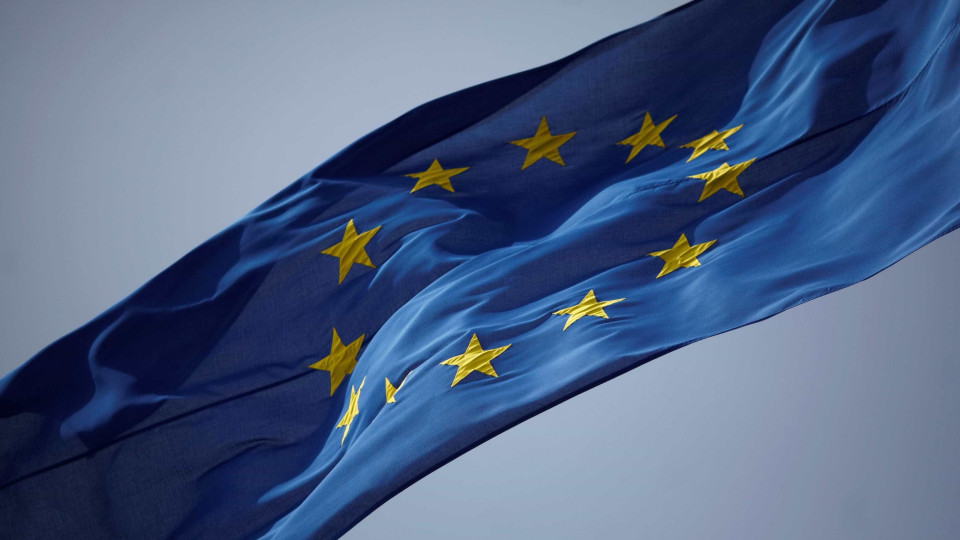Europeias. Almost all parties dissatisfied with Migration Pact
Almost all Portuguese top candidates in the European elections assume they are dissatisfied or even against the Pact for Migration adopted less than two weeks ago by the European Council of the European Union.

© Reuters

Política Eleições
In response to a questionnaire sent by the Lusa agency to the top candidates in the June 9 elections for the European Parliament, the top candidate for Chega, Tânger Corrêa, said he was "totally against the agreement" and declared that demanding its revocation would be an "absolute priority".
Stating that he is in favour of "legal and orderly immigration", even because it is "necessary for the economy", the candidate argues that society and democratic regimes "cannot withstand the entry of hundreds of millions of people who are, overwhelmingly, economic migrants".
On the other side of the political spectrum, the positions of the Left Bloc and the CDU are also against the Migration and Asylum Pact.
For Catarina Martins, top candidate for the Left Bloc, the agreement "worsens what was already bad", since it "increases the control and persecution of immigrants and refugees in Europe".
The pact "allows the detention of families with children, the collection of fingerprints of children from the age of 6, allows all persons in an irregular situation to be detained and transferred to the deportation procedure", she criticises, arguing that Europe must welcome without discrimination.
The exploitation of migrants is one of the criticisms made by the top candidate for the CDU, João Oliveira, for whom the pact "consolidates a selective, exploitative and inhumane vision, defined according to economic and opportunistic interests".
João Oliveira believes that there is a lack of "an urgent and adequate response to the dramatic humanitarian situation that affects thousands of migrants and refugees, with particular expression in the Mediterranean", and demands a fight against human traffickers.
For PAN, Pedro Fidalgo Marques defends "a migration policy based on the defence of human rights and solidarity", stating that he is against the European pact.
According to the candidate, the agreement on migration focuses "on repressive measures, with accelerated procedures at external borders, prolonged detentions and a transfer of responsibility to third countries" instead of supporting those "seeking a better quality of life".
Francisco Paupério, the top candidate for Livre, is also clearly against the pact, stating that he wants the "creation of a more humanist common asylum system, with safe, legal and open channels to enter Europe".
The candidate justified his disagreement by arguing that "a migration and asylum system cannot detain children, separate families, externalise European borders and put a price on human life".
The positions of the PS and the AD (PSD/CDS-PP/PPM) are much less critical, although they admit to finding loopholes in the European agreement.
The pact "has the virtue of setting rules that take power away from human trafficking networks", admits the top candidate for the AD, Sebastião Bugalho, stating that "it is better to have a pact than to have no pact at all".
Sebastião Bugalho argues that the agreement should go "further" and include, for example, "the granting of extended international protection to parents, children and siblings", because welcoming families constitutes "an essential factor in the integration of immigrants".
The agreement has the "virtue of setting rules that take power away from human trafficking networks", he admits, considering, however, that "there are always aspects to improve" and that he intends to strengthen it "by extending the scope of the BlueCard (work permits for highly qualified citizens).
The top candidate for the PS, Marta Temido, believes that there are positive aspects in a pact that "resulted from a long and difficult negotiation process", but acknowledges that some issues raise concerns for her.
"We consider the sharing of responsibilities in terms of migration to be positive, through the solidarity system", but the European Parliament will have to "ensure careful monitoring of its implementation", she argues.
According to Marta Temido, it is necessary to "invest in regular and safe migration channels" and promote policies that prevent "humanitarian tragedies" in the Mediterranean Sea.
Among the various candidates, João Cotrim Figueiredo, top candidate for the Liberal Initiative, is the only one who clearly declares himself in favour of the Migration Pact.
"We must have a humane and fair migration policy with those who are eligible; firm with those who are not eligible; and uncompromising with trafficking and labour exploitation networks", he says, arguing that "disorganised immigration is the greatest of all obstacles to the integration of immigrants".
The Migration and Asylum Pact was approved last December by the European Parliament and on May 14 by the Council, but it will only be effective from 2026.
Also Read: European elections. The party in government won 4 of the 8 elections held here (Portuguese version)

Descarregue a nossa App gratuita.
Oitavo ano consecutivo Escolha do Consumidor para Imprensa Online e eleito o produto do ano 2024.
* Estudo da e Netsonda, nov. e dez. 2023 produtodoano- pt.com



